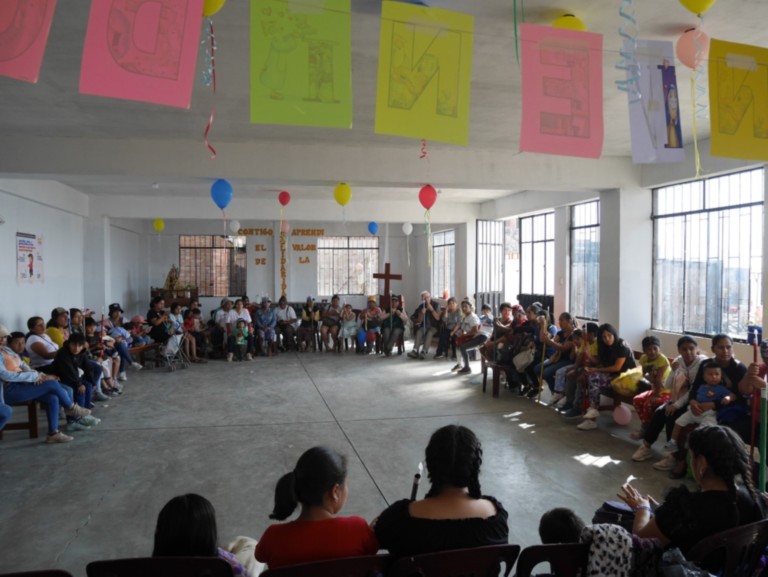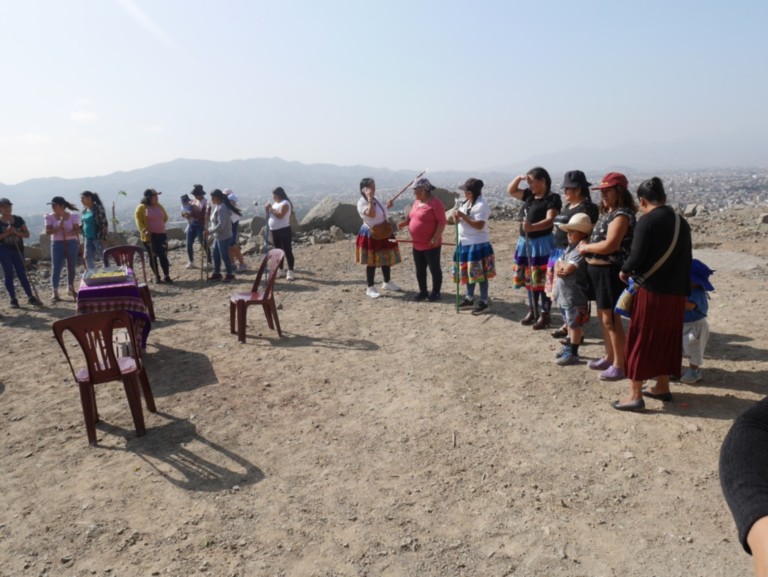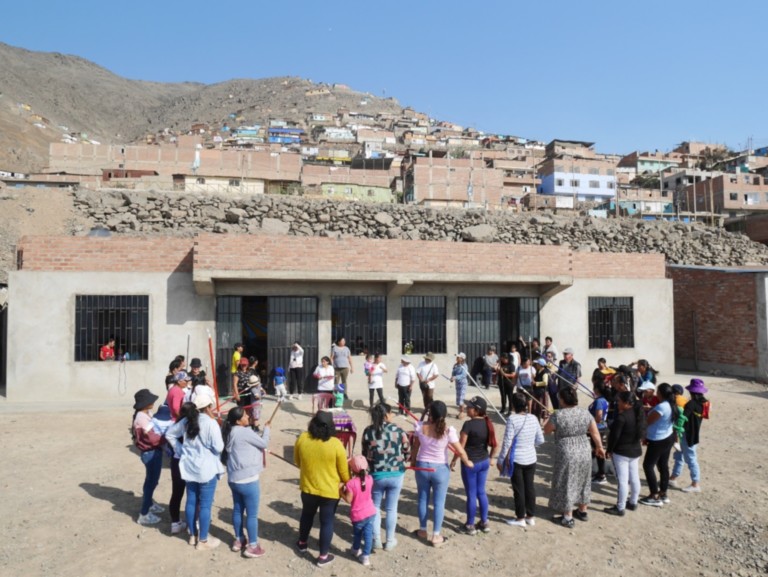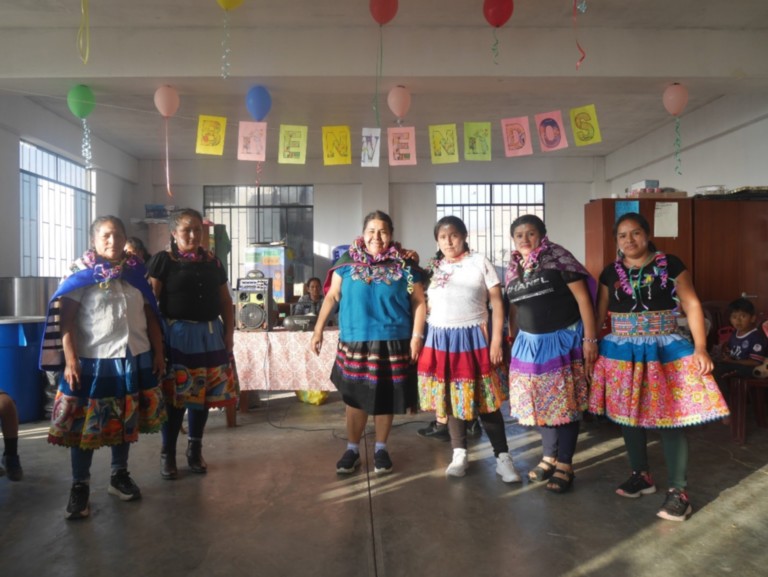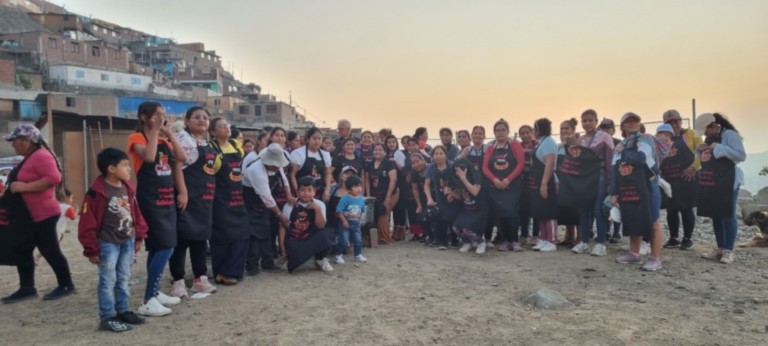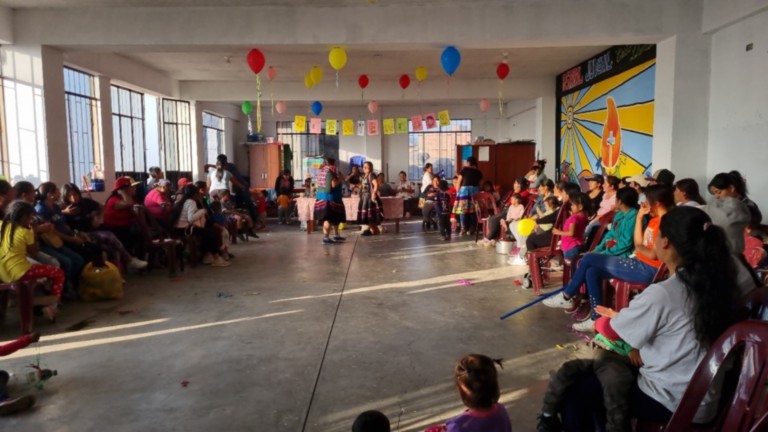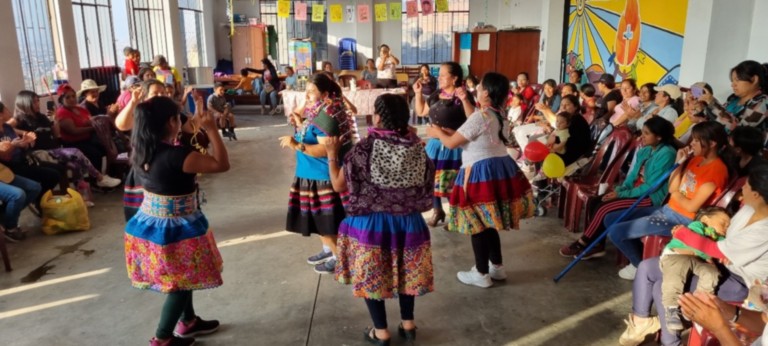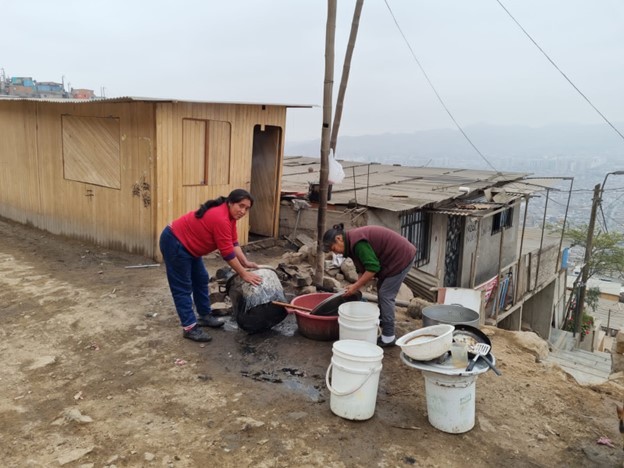“With You, I Learned the Value of Solidarity”

Every community kitchen or communal pot – as we call it in Peru – is a sacred space. When opening the door, we enter a place where vegetables and spices mix with what each woman brings from home: her struggles, joys, discouragement, hope. Above all, a lot of hope! As the morning passes, ingredients and lives intertwine.
Unexpectedly, the pots are ready to be shared, split, distributed, divided with my brother, with my sister. As if it were a liturgy of solidarity from start to finish. "And let there be enough for everyone. And if there is not, I will donate my portion," the women say almost singing. That’s how generous and committed these organized ladies from the Upper Parts of Comas are.
This chain of solidarity was felt more intensely during the pandemic when there was nothing to put in the pot. Each household felt the weight of the pandemic, trying to survive with what they could. Faced with this challenge, it was enough for a neighbor to suggest: let’s cook together! "I have rice," said one. "And I have beans," said another. "And I have onions." "And I’ll add the oil." "I don’t have anything, but I can cook and wash the pot." And solidarity worked miracles.
At dawn, braving the cold or rain, they went out to collect firewood to cook the food. They organized trips to the port or market to find fish scraps and vegetables. Other donations came from churches and various institutions. Together, they managed by law to have the government send them the monthly ration they needed.
The solidarity they experienced among themselves made them see beyond their own needs. They began to think about those who have less and the most vulnerable. They, like experts in social work, call them "social cases." These are the elderly, people with special needs, and the sick in the community.
At other times, they turn into real psychologists: listening, consoling, and encouraging one another. I remember that when there was something they couldn’t solve on their own, they would come down to my house to tell me what was happening. And so, together, we tried to find a solution.
When there is solidarity, teamwork, leadership, and friendship, everyone wins! Imagine how much money is saved in a household when the day's meals are sorted.
These women also face many other challenges, such as criticism from some neighbors, or husbands who demand they stay at home, requiring them to take care of the children, oversee schoolwork, among other challenges. But they themselves recognize the benefits of being organized, empowered, and working together. Today, they see themselves differently, having acquired new skills they were not previously aware of. Teamwork has improved the self-esteem of these women, allowing them to discover skills and talents they did not know they had, fostering friendship and camaraderie. All of these are useful tools for improving their lives and the lives of the community.
I want to thank each and every one of you, with whom I shared my mission time in Peru, for teaching me that what you do daily is a sacred act. It is an extension of God's hands to each brother and sister. And for teaching me that solidarity is the greatest show of love, as it takes us out of the “I” from my selfish and closed heart, to think about “Us.”
María Beatriz Medina
Lay Missionary
